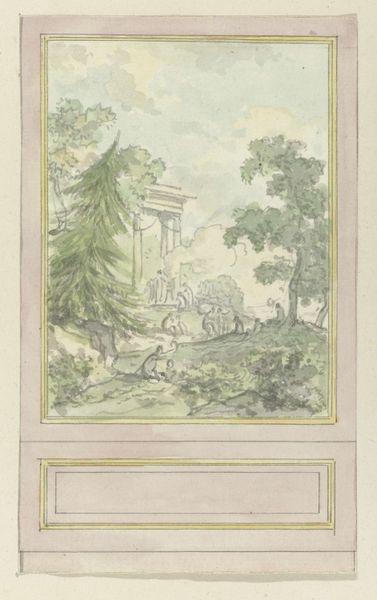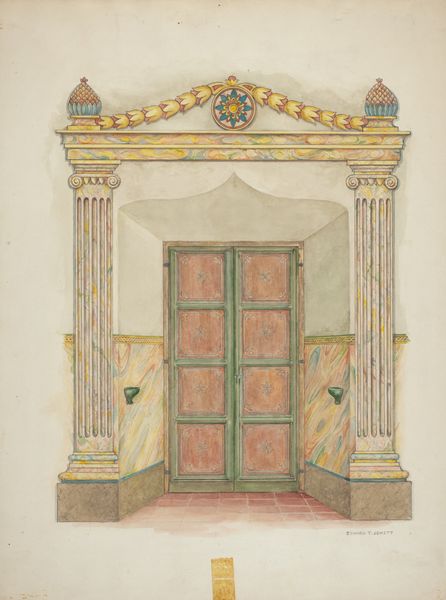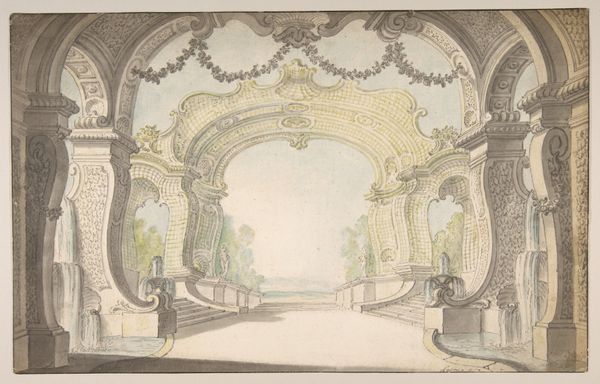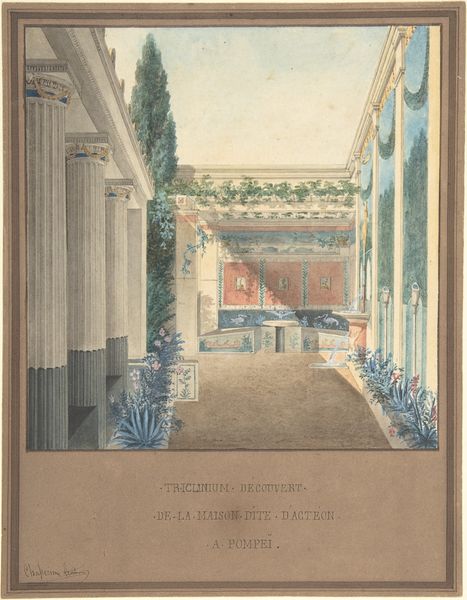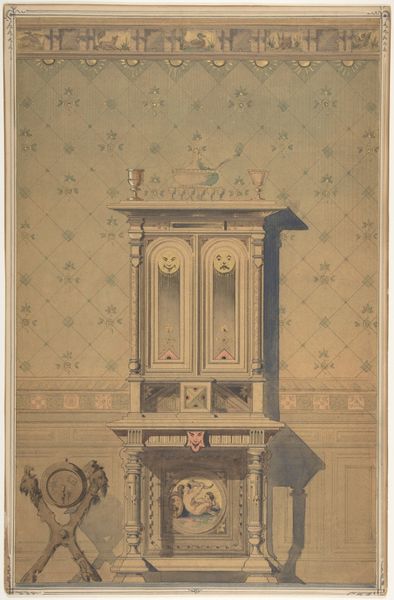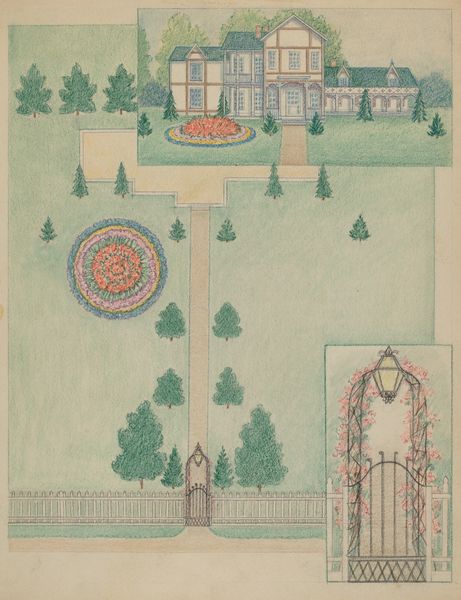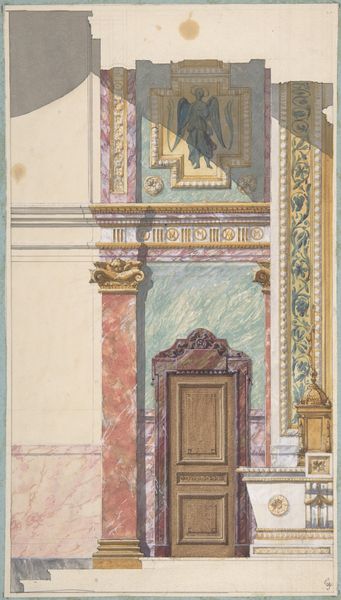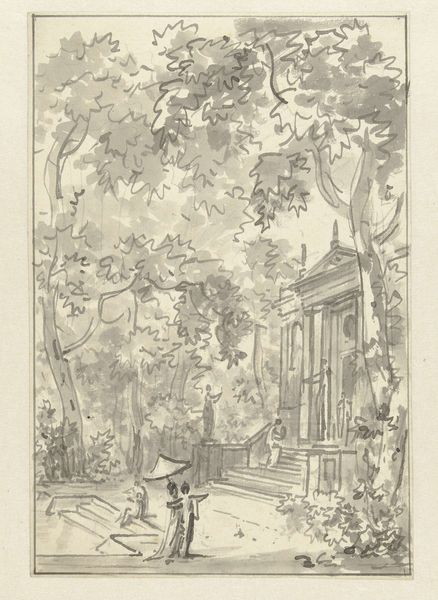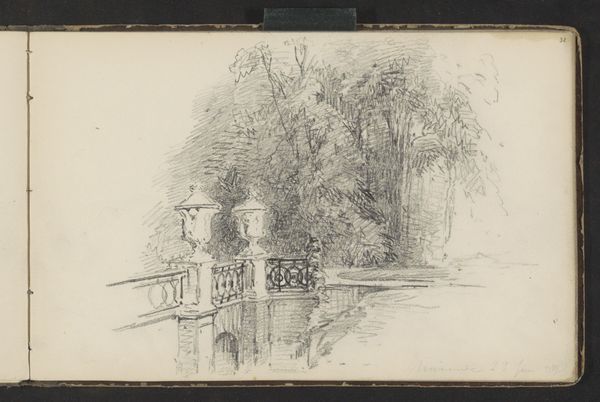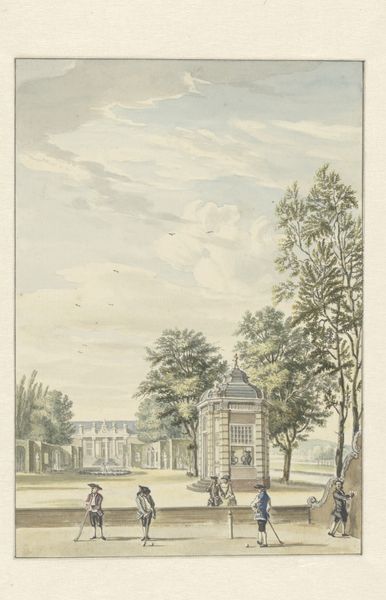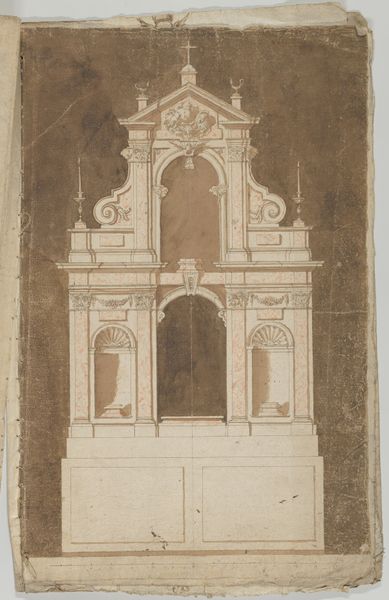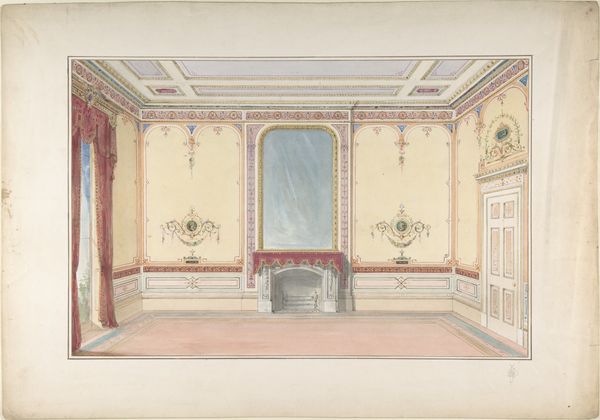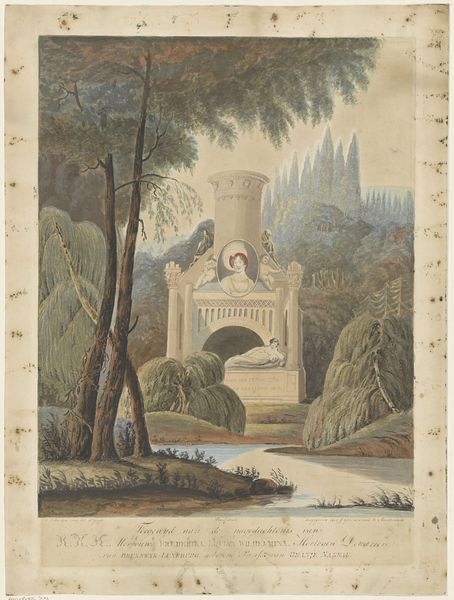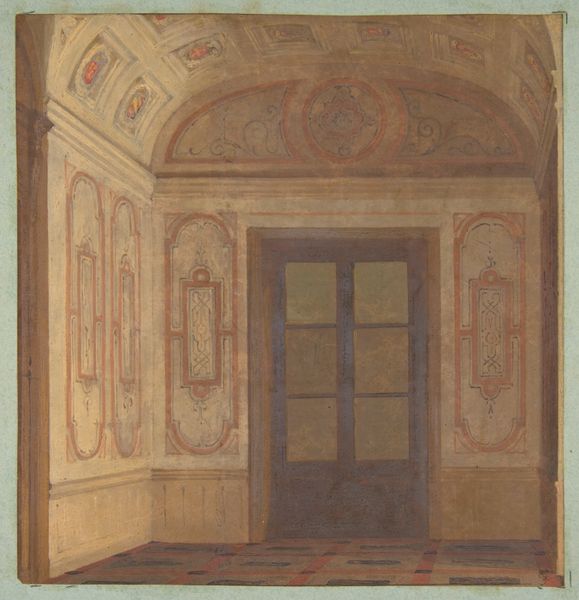
A garden pavilion in a forested landscape 1830 - 1897
0:00
0:00
Dimensions: Overall: 14 13/16 x 10 7/16 in. (37.7 x 26.5 cm) image: 10 1/4 x 7 1/2 in. (26 x 19 cm)
Copyright: Public Domain
Curator: It strikes me immediately as a liminal space. I feel caught between a romanticised notion of architecture and something far more measured and pragmatic. What are your first impressions? Editor: Well, seeing this "A garden pavilion in a forested landscape", sometime between 1830 and 1897, allegedly, and presently at the Met… it reminds me of those dollhouses my grandmother used to collect, especially with that meticulously placed greenery. Sort of unsettling, in a quaint way. Curator: Unsettling how? This piece, attributed to Jules-Edmond-Charles Lachaise, engages with prevailing academic tastes by employing watercolor and drawing to imagine idyllic leisure spaces. In a society undergoing immense industrial change, it spoke to a desire for simpler times. Editor: I suppose the 'idyllic' is doing some heavy lifting here, because, sure, it's lovely, but there's also a certain… theatricality? Stage-set vibes. Everything's just a bit too neat, too framed. Like a proscenium arch announcing artifice. The Romantic sensibility bumping into early urban planning… Curator: It's true, the composition does seem very deliberate, emphasizing a controlled perspective. Think about the context, though: idealized landscapes were a form of escapism, a response to anxieties of industrialization. It makes sense they were meticulously planned. Editor: Right, I get the yearning. But even yearnings have layers, don't they? This isn't raw, unadulterated nature; it's nature tamed and curated. Maybe what unsettles me *is* that control. Who gets to design these escapes? And who's kept out? Curator: That's an interesting point. Such designed landscapes, even in art, are invariably enmeshed within patronage systems. Access, display, and, indeed, perception all are regulated by prevailing tastes and hierarchies. Editor: Maybe I’m just projecting, but it feels like it's saying, "Look at this perfect escape... that you probably can't afford." And that knowledge changes the colors, changes the whole forest, you know? Curator: Certainly a valid reading of the piece given our changed world and contemporary understanding of class. I find myself newly drawn to consider the power relations inherent to "leisure" itself. Editor: Yeah, all that's to say... that for all the calm that this idealized drawing projects at first glance, a deeper, more critical reading can lead us to rather complex perspectives of its place in society and beyond. Curator: A worthwhile observation to end on. Thank you.
Comments
No comments
Be the first to comment and join the conversation on the ultimate creative platform.
